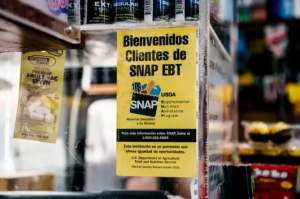Major Changes to the SNAP Food Assistance Program Begin This November
This November, one of the nation’s most important food support programs, SNAP – will undergo significant reforms that could affect millions of households. The changes stem from the One Big Beautiful Bill Act, a wide-ranging package that aims to reduce federal spending and strengthen oversight.
According to the Congressional Budget Office, these updates could cut roughly $187 billion from SNAP over the next decade.
Expanded Work Requirements
Starting in November, adults ages 18 to 65 must work at least 80 hours per month to continue receiving benefits beyond the three-month time limit.
Key updates include:
Parents are only exempt if their child is 13 or younger
Previous exemptions for homeless individuals, veterans, and certain former foster youth are removed.

People with verified physical or mental limitations remain exempt
States may request waivers in high-unemployment regions
The CBO estimates that an average of 2.4 million fewer people may receive SNAP benefits each month by 2034.
Eligibility Changes for Immigrants
The reforms tighten eligibility under the Food and Nutrition Act. SNAP benefits will now primarily be limited to:
U.S. citizens
Lawful permanent residents (LPRs)
Several longstanding humanitarian and residency-based pathways have been eliminated. Advocacy groups warn that about 90,000 individuals per month may lose eligibility.
Updates to the Thrifty Food Plan (TFP)
The TFP, which determines the maximum SNAP benefit, will now:
Be reviewed no earlier than 2027

Require all future revisions to be cost-neutral
Apply the same cost standard to all household sizes
The USDA has issued standard 2025 COLA increases—for example, a family of five will now receive up to $1,183 in most states.
Administrative Changes Affecting States
Beginning in fiscal year 2027:
Federal reimbursement for state administrative costs drops from 50% to 25%
States with a SNAP payment error rate above 6% will face financial penalties
Many states warn this could strain budgets if error rates are not reduced promptly.
What This Means for Families
Supporters say these reforms will increase accountability and help keep the program sustainable. Critics argue that the changes may increase food insecurity, especially among older adults, low-income households, and immigrants who previously qualified for assistance.
As the November rollout begins, states must adjust their systems, and millions of families will feel the effects of one of the most consequential SNAP overhauls in recent history.



























